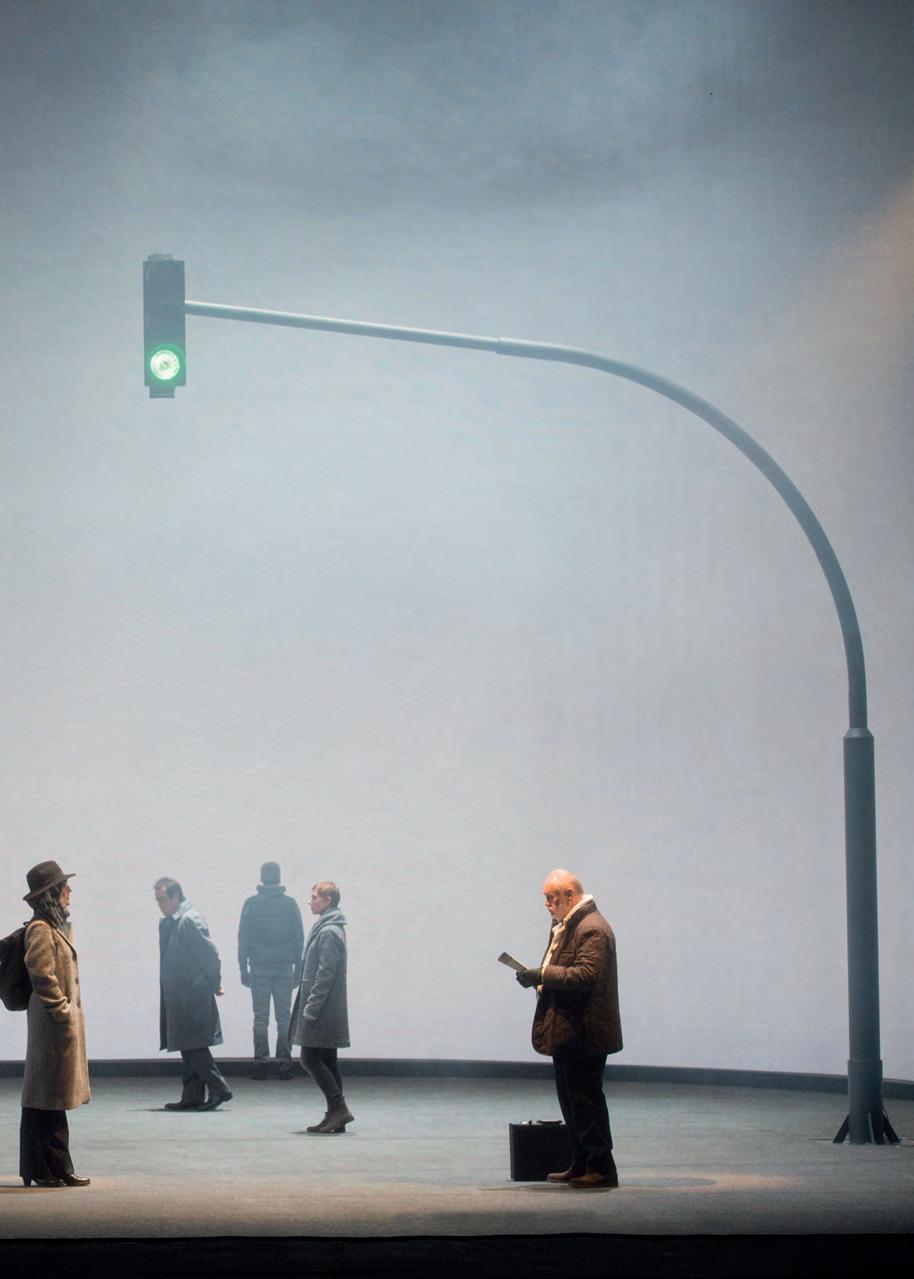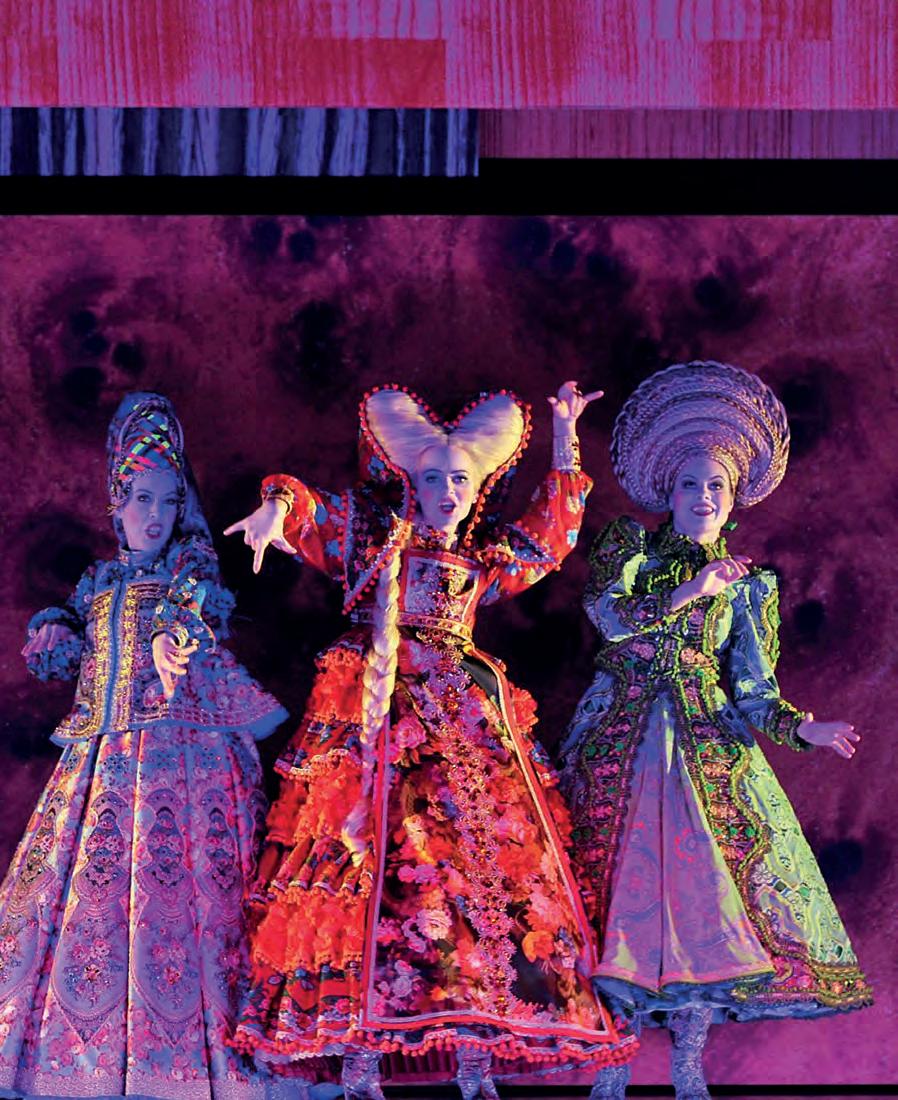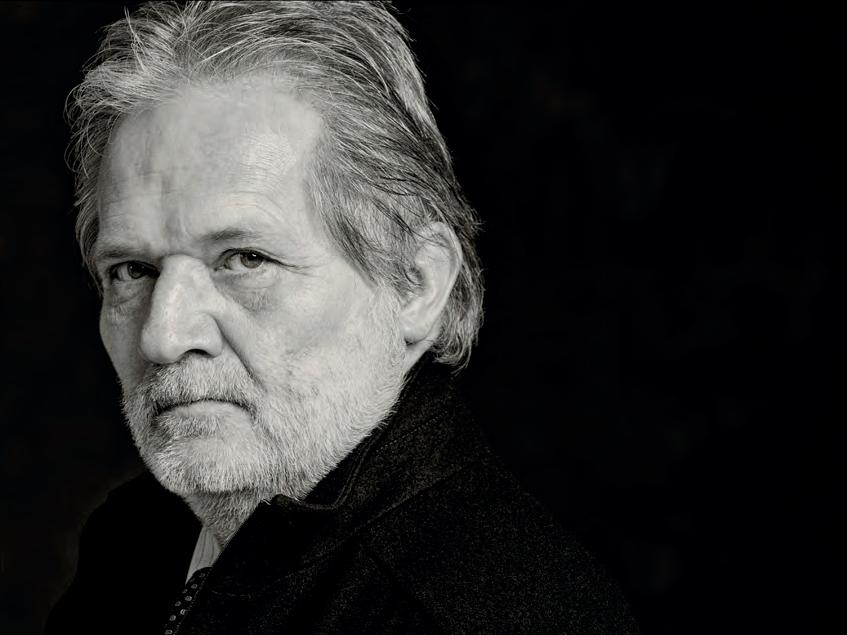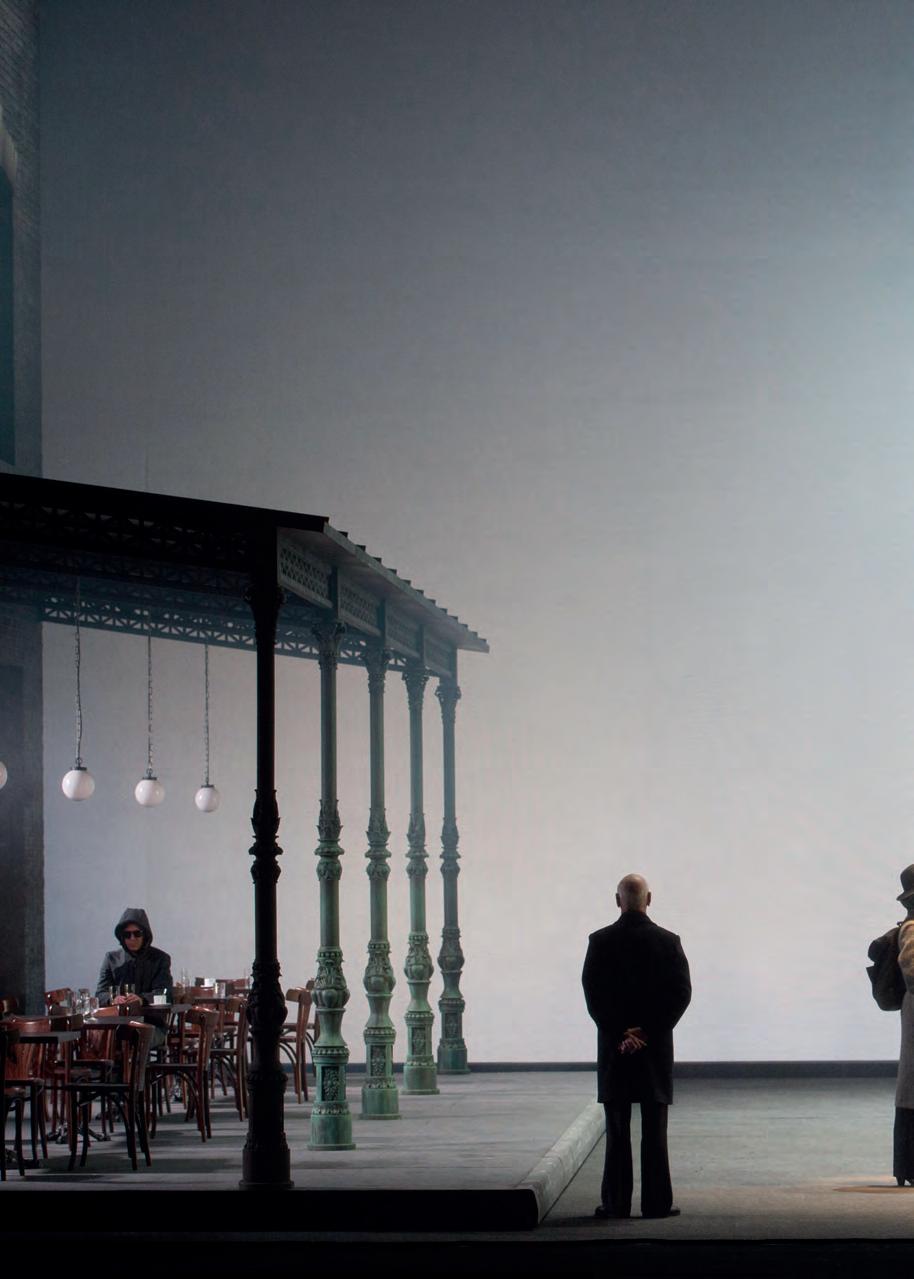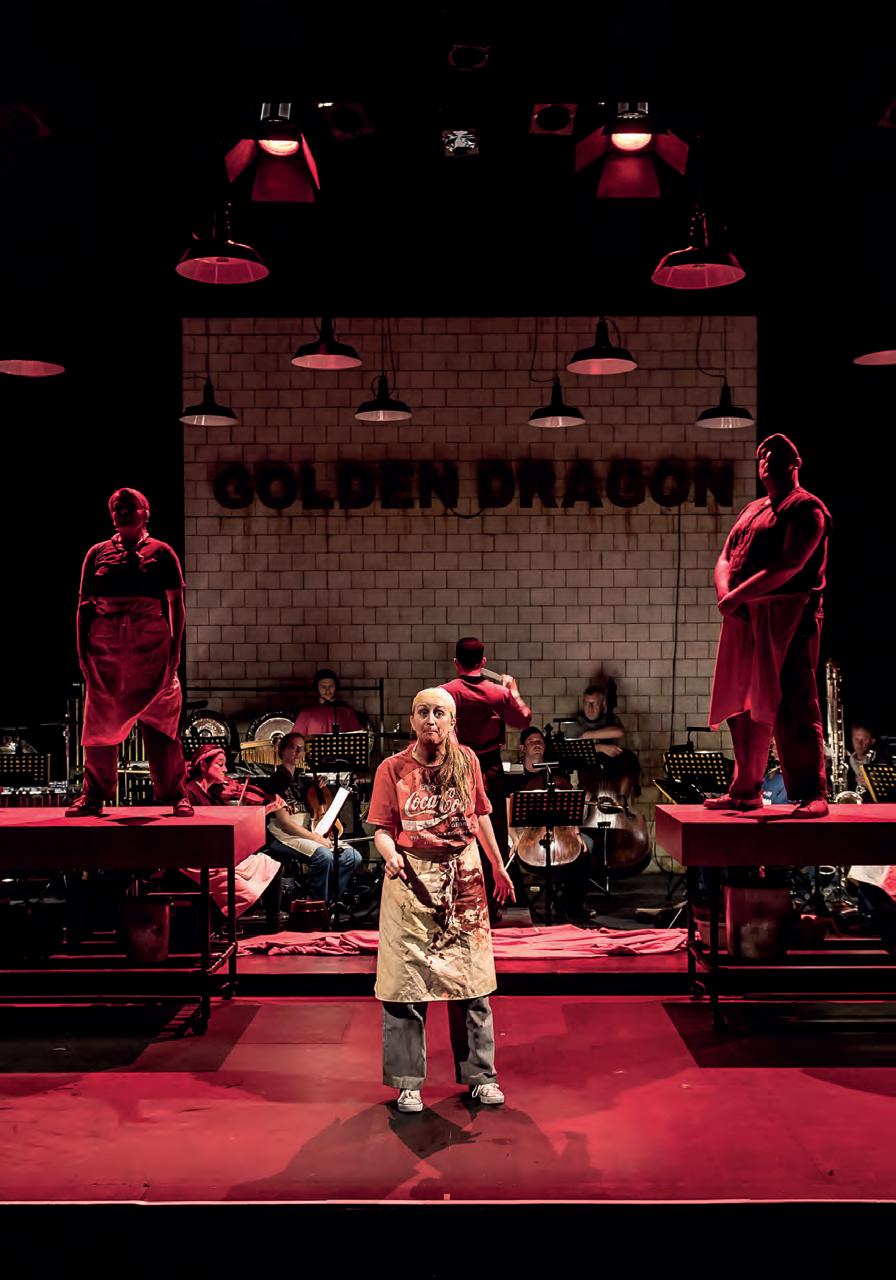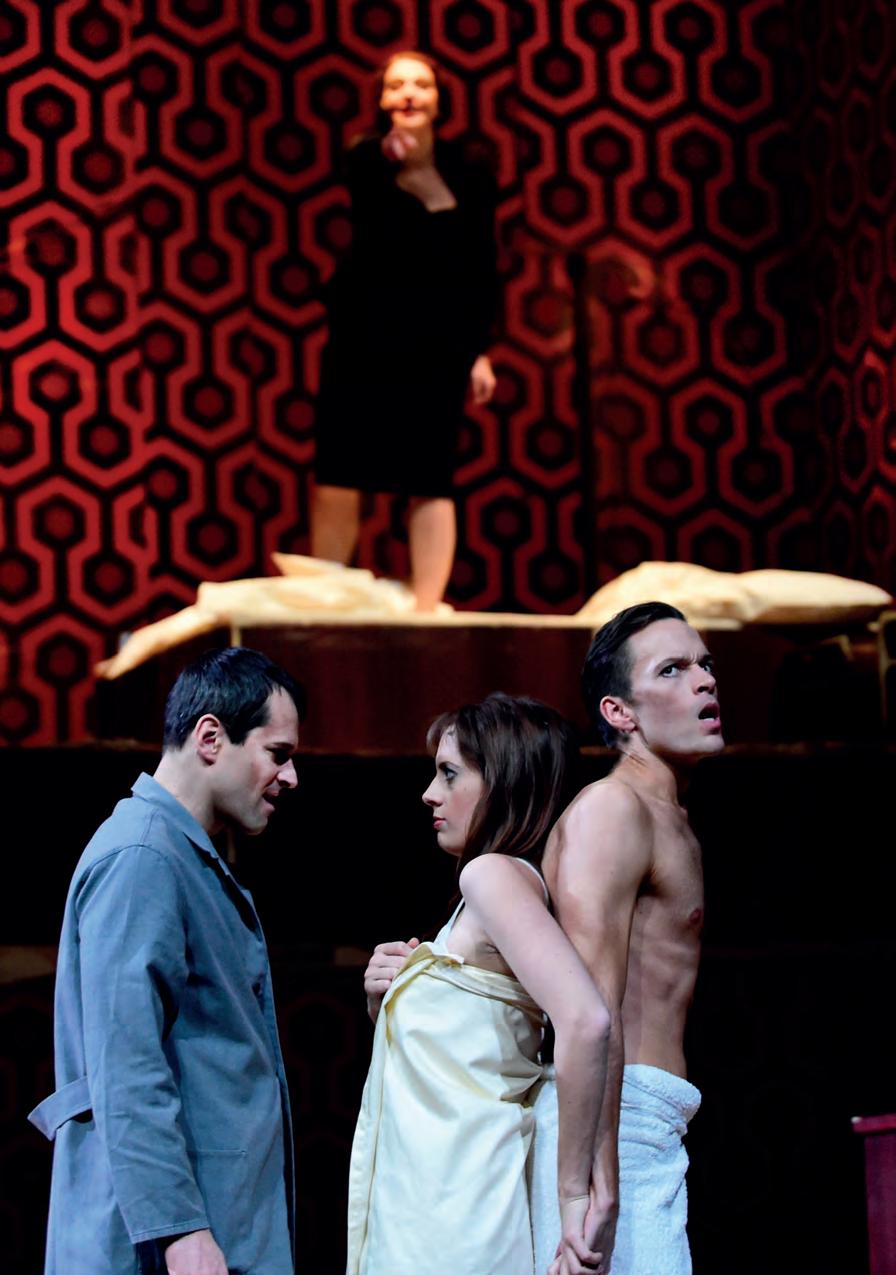
1 minute read
Axel Petri-Preis: “Visible made audible and audible made visible” Six spotlights on the stage works of Peter Eötvös
Although Peter Eötvös was enamoured by the material but not completely happy with its realization in his opera Die Tragödie des Teufels, he undertook a new approach to the thematic complex surrounding the story of creation with Paradise Reloaded (Lilith). In this work, he turns the main focus away from Lucifer and onto the fi gure of Lilith (who had already made a subcutaneous appearance in Love and other Demons in the fi gure of Sierva Maria).
5 CHANGE OF PERSPECTIVES Peter Eötvös’ Der goldene Drache [Golden Dragon] is based on a successful theatre play by Roland Schimmelpfennig with whom the composer also collaborated in the compilation of the libretto. Scored for chamber ensemble and fi ve singers (playing 17 highly contrasting roles), the work exa m i n e s the tragic o m i c a l events taking place in and around an Asian restaurant from a variety of perspectives.
Advertisement
6 OPERA FROM LITERATURE? It is striking that Eötvös always distils his operatic plots from major literary sources (Chekhov, Genet, Kushner, Marquez, Madách and Schimmelpfennig ...). His methods of adapting his material are however highly diverse. Although he takes substantial liberties with the original sources of Tri Sestri and the two Lilith operas Die Tragödie des Teufels and Paradise Reloaded (Lilith), he remains so close to the sources of Le Balcon, Angels in America and Love and Other Demons that these can be categorised as genuine literature operas. With regard to the importance of the plot, Peter Eötvös terms his operas “Spielopern” or “musical theatre plays” in which he always considers the comprehensibility of the text as a vital factor.


Radames, Bayerische Theaterakademie August Everding 2008 Inszenierung / Staging: Renate Ackermann

